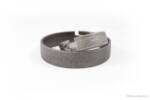Newest FAQs
Calling out ASTM F1554 (grade 36, 55, or 105) indicates the grade of material, but the specification itself does not require a specific configuration and does not indicate whether or not the bolt is galvanized. F1554 is a fastener specification which covers steel anchor bolts intended for anchoring structural supports to concrete foundations. The specification provides... Read more
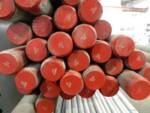
In short, no, the thread length of A193 B7 bolts is not the same as the thread length of A325 bolts. The F3125 Grade A325 specification covers heavy hex structural bolts which have standard fixed thread lengths shown in the table below. The thread lengths can be altered, but A325 bolts with nonstandard thread lengths must... Read more
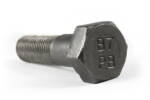
The reason is similar but different for the drop in strength of grade 2 and grade 5 fasteners. For J429 grade 2 fasteners, the drop is due to the manufacturing process. Small, mass produced cap screws are cold formed by drawing and forming wire. The wire, as it is cold formed, work hardens which increases... Read more
Unfortunately not. Due to the custom nature of each assembly’s unique diameter, length, and right hand and left hand thread requirements, we do not have a way to inventory “standard” assemblies. Clevises also have several options per size including tap size, right or left hand threading, pin size, and grip which is the reason these... Read more
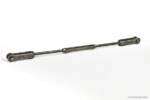
20’ lengths of all thread rod are not commercially available off the shelf and would have to be custom made to order. In most instances, all thread rod is cut to length and it is more economical to use more sticks of standard 12 foot and shorter sizes. If a 20 foot connection is needed,... Read more
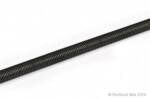
A325 structural bolts start at ½” diameter with the shortest length available being 1-1/4”. As far as the ASTM specification is concerned, there is not an official documented reason as to why they are not readily available; however when asked to provide 1” length, we have found that they are not easily obtained in the marketplace.... Read more
ASTM F3125 Grades A490 and A325 structural bolts are mass-produced through 1-1/4” diameter. However, there is an exception for 1/2” A490 bolts. Compared to other diameters, these are not commonly used. Therefore, 1/2” diameter A490 bolts are not mass-produced and are not readily available in the marketplace. There are a couple of ways to work around this. First,... Read more
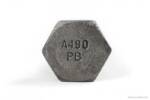
In most situations you can. A leveling nut is a term that refers to the application of the nut rather than the physical dimensions of the nut. Many times they are called out as “jam” or “half” nuts because they can be cheaper, do not need to provide structural value, and are just used for leveling purposes. ... Read more
No. In 2015, ASTM changed the diameter parameters from 1/4”- 4” to 1/2”- 4”; eliminating 1/4” and 3/8” diameters from the specification. This was in part due to the lack of material availability that had the test reports or traceability in these smaller diameters that conformed to the F1554 requirements. If your project requires F1554... Read more
Unlike shear plates, split rings are not made to a particular specification. Shear plates are made to a dimensional specification, ASTM D5933 and are made from a malleable casting meeting the ASTM A47 Grade 32510 specification. This is a specification that covers ferritic malleable castings intended for general use. Other products which are made to... Read more
